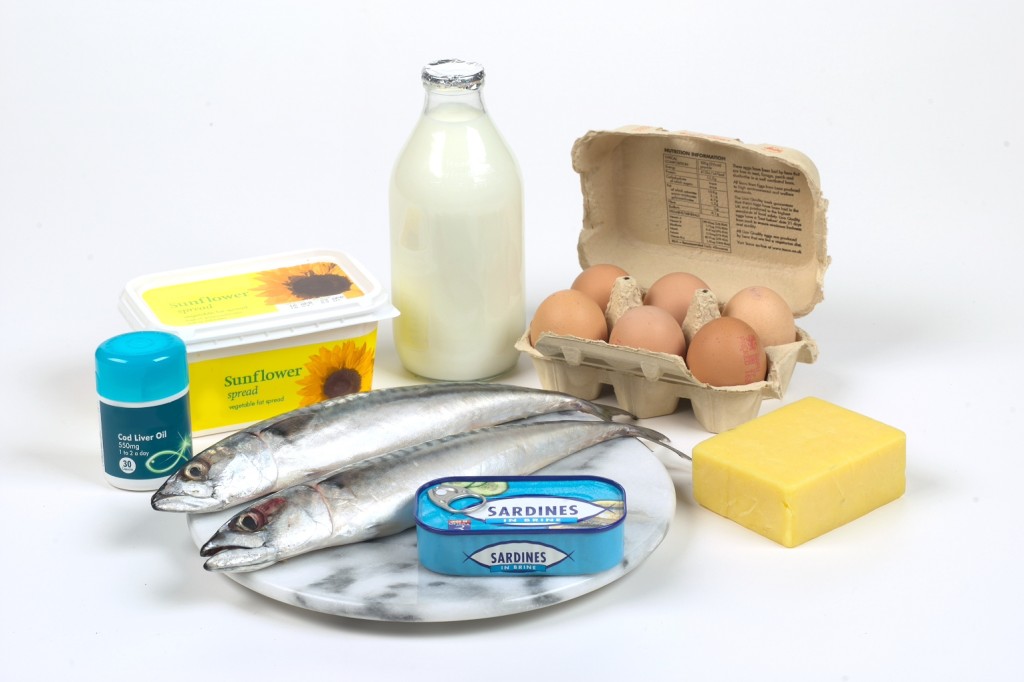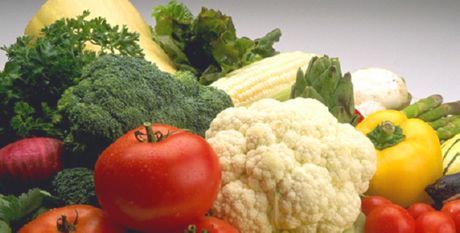New publications
Vitamins that a person needs every day
Last reviewed: 01.07.2025

All iLive content is medically reviewed or fact checked to ensure as much factual accuracy as possible.
We have strict sourcing guidelines and only link to reputable media sites, academic research institutions and, whenever possible, medically peer reviewed studies. Note that the numbers in parentheses ([1], [2], etc.) are clickable links to these studies.
If you feel that any of our content is inaccurate, out-of-date, or otherwise questionable, please select it and press Ctrl + Enter.
The body needs vitamins to function properly. If it doesn't get enough of them, various disorders occur and diseases develop. Despite the fact that winter is just around the corner, it is not difficult to replenish the lack of vitamins. The main thing is to know which products will help you.
Vitamin D

Vitamin D is an important factor influencing metabolic processes in the body. It is also important for bone health and has the ability to increase the body's defenses. In winter, when people lack sunlight, it is very important to get enough of this vitamin to protect against colds and flu. In addition, numerous studies have linked vitamin D and a reduced risk of colorectal cancer, skin cancer, breast cancer, and prostate cancer. With the help of calcium and magnesium, vitamin D strengthens bone tissue and protects against cardiovascular diseases.
This vitamin is found in the following products: herring, salmon, halibut, cod liver, wolffish, mackerel, oysters, sardines, tuna, shrimp, eggs, shiitake mushrooms.
Omega-3 fatty acids

The properties of omega-3 fatty acids have been studied by specialists for a long time. Fatty acids are the building blocks of fats, which are vital for the body as nutrients. They also regulate blood clotting, the construction of cell membranes, and cell health. Omega-3 fatty acids are polyunsaturated fats that promote cardiovascular health by reducing blood triglyceride levels and cholesterol. The body does not produce omega-3, so it is very important that we get them from food. Unfortunately, in most cases, people do not get enough of them, but knowing which foods contain them can help improve the situation.
Omega-3 fatty acids are found in: fatty fish such as salmon, tuna, sardines, mackerel, walnuts, flaxseed, wild rice and, of course, dairy products.
Vitamin E
As an antioxidant, vitamin E protects our cells from free radicals and may protect against cancer and Alzheimer's disease. It is one of four fat-soluble vitamins that our bodies require for optimal functioning. However, many people do not get enough vitamin E from their diet.
Vitamin E is found in: sunflower seeds, wheat germ, almonds, hazelnuts, peanuts, olive oil, spinach, broccoli, kiwi, mango, and tomatoes.
Calcium
Calcium is a mineral that is essential for bone health, as well as maintaining the nervous system and normal blood pressure. It is best to avoid supplements and instead eat foods that are a source of calcium. The recommended daily intake is 1,000 mg per day for adults aged 19 to 50 years, and 1,200 mg for those over 50 years. Pregnant and breastfeeding women may need more.
So what foods contain calcium? Dark green leafy vegetables, oranges, sardines, broccoli, nuts, seeds, salmon, apricots, currants, tofu, figs, and low-fat dairy products. If your diet does not include enough calcium, you can take 1,000 mg of calcium daily in supplement form.
Magnesium

Another protector of our bones is magnesium. It also supports blood circulation, cardiovascular health, and helps muscles and nerves relax. Magnesium is present in: nuts, beets, dark leafy greens, seeds, dark chocolate, zucchini, pumpkin, cucumbers, black beans, cereals and bran. The recommended dose for men is 420 mg / day, and for women - 320 mg / day.
Vitamin C
This vitamin is very important for increasing the body's defenses, it helps heal wounds, protects against cancer and fights free radicals. The daily dose for men is 75 mg, and women need 90 mg of this vitamin.
Where to find vitamin C: broccoli, red peppers, cauliflower, parsley, lemon juice, strawberries, lettuce, tomatoes, kiwi, papaya, guava, almost all fruits and vegetables have some amount of vitamin C.

 [
[